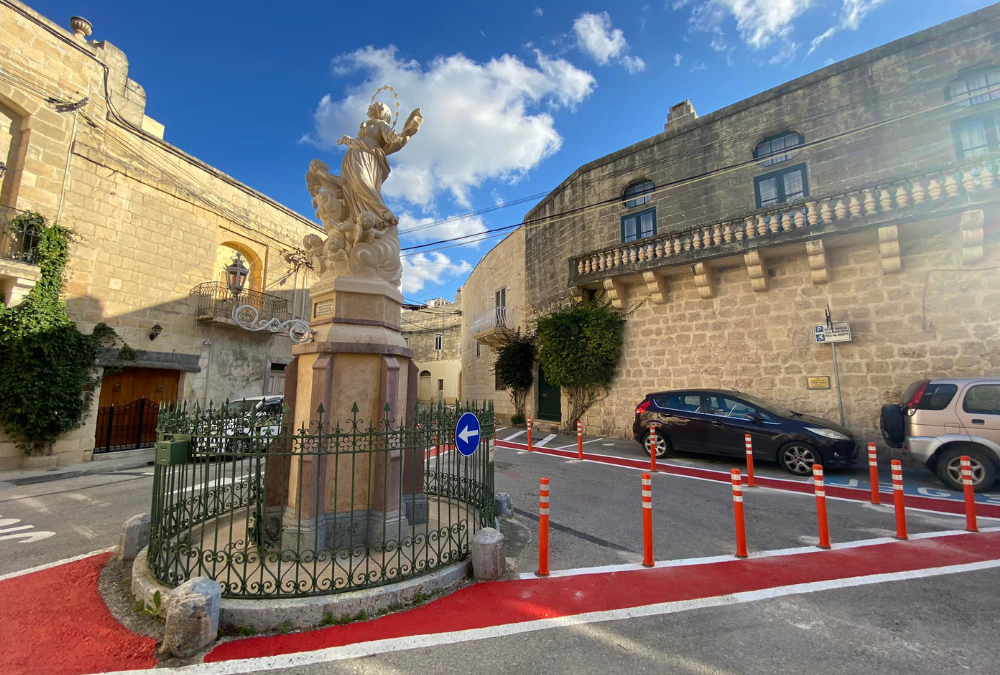On 16 November 2023, I published a follow up article to this website’s coverage of the Mosta square saga in which twelve mature Ficus trees were almost completely eradicated at the behest of an ignorant mayor and a complacent local council.
In that follow-up piece, I went into detail about the intersection between environmental crime and corruption. I also made it a point to talk about how sometimes, the biggest flashpoints in civil society occur over events which, in the context of statewide corruption cases that have rocked the country during the past decade, seem paltry and insignificant in comparison. The public’s overwhelmingly angry response to the butchering of these mature trees was only disproportionate if you discount just how important trees are for our collective memories.
Curiously, Mosta’s local council yet again pissed off a significant chunk of its constituents with more lousy roadworks. This time, it wasn’t even the removal of trees, or the so-called pedestrianisation of Mosta’s square (which is mostly open to traffic anyway), or even the ridiculous amount of residential streets which are currently closed for eternal bouts of resurfacing and re-resurfacing.
This time, Mosta’s residents are pissed off about the placement of bollards and god awful looking red paint markings around a statue in Pjazza Brittanja, both of which obviously ruin the aesthetic of the street.

A photo showing the bollards and the red paint around the statue in Pjazza Brittanja. Photo: Thomas Demartino
The original post evidently spread like wildfire. Multiple residents, politicians, and activists took to social media to lambast the works, to ridicule the tasteless individuals who stood foursquare behind this decision, to question how come Malta has been suddenly invaded by bollards everywhere you look, to complain about how nothing gets done right in this country (“pajjiż tal-Mickey Mouse”). Comments on every post I saw featuring this bizarre, land based tribute to the Bermuda Triangle numbered in the dozens, sometimes hundreds.
On the same day, a much more significant news item was published: Transparency International’s Corruption Perception Index. As highlighted in this article by The Shift’s Elizabeth De Gaetano, Malta remains in the lowly ranking it was in last year, achieving a score of 51 out of 100 (100 would be a perfect state with zero corruption). While the publication of this year’s version of the index was covered by practically every major news portal in the country, the amount of reactions and comments on social media just don’t compare with the posts about Mosta’s latest visual affront.
There are many factors at play here. Mosta’s residents are battling it out with the realities of their locality day in, day out. The immediate, obvious impact of badly planned roadworks is always much easier to pin down than the long-term impact of corruption, even when people manage to make the connection between the two problems and consider them as two links on the same rusty chain. The former does not require keen analytical skills or an understanding of civic duty, while the latter does.
However, when I examine these two news items together, along with how generally, relatively minor controversies elicit much more outrage than wholesale corruption does, I can’t help but think of just how upside down everything is in this country. Although I still believe that crowds responding to ridiculous instances of misuse of public funds is still much better than just switching off entirely and not reacting at all, I do struggle with just how different the reactions to these scenarios are.
The fact is, for all the machismo and bravado that is imbued in Southern Mediterranean cultures like Malta, we are a population that is terrible at handling confrontation due to centuries of being told to keep our heads down, to mind our own business, and to never speak up publicly about wrongdoing because you never know who you might need to call upon in your hour of need. We love to gossip and talk smack behind someone’s back, but we do not engage in direct, honest, and transparent conversations with each other.
We will complain, nag, and fuss over pretty much anything, but we also often fail to take any kind of action to remedy a troubling situation, hoping that someone else – say, an activist, or a journalist, or both – will step in to tackle an issue. There is a lack of autonomy, independent thought, and defiant resistance, gaps which civil society has stepped in to address over the course of the last decade.
While thing are improving, we are still a long way off the mark. We are certainly not a democratic country, by any stretch of the imagination. If we were, civil society groups wouldn’t be constantly targeted by the Labour Party’s hate machine. Instead, credible members of civil society would be revered and respected, and their ideas would be taken on board and considered seriously rather than being described as an attack on the country.
We must, at all times, keep in mind that while it is all well and good to call out horrible infrastructural decisions for what they are, it is not nearly as important as addressing the root cause of our problems. The root cause of all those problems is, beyond any reasonable doubt, the Labour Party and the government systems it has dismantled over the past ten years. It is, by now, patently ridiculous to even suggest that the Nationalist Party has anything to do with the situation we are in today beyond the notion that it has failed to mount a powerful opposition that successfully manages to hold government to account.
No matter how many times we tell ourselves the dozens of excuses one can come up with to justify a failure to act in the face of manifest wrongdoing, the fact is that our collective fear of open, defiant confrontation is also part of the reason why we are in the situation we are in.
Complaining about a badly planned street all day only to then switch off the minute you see a news item about corruption is, on a conceptual level, the same as yelling out loud that your vehicle’s engine is broken but then refusing to do anything to fix it because you don’t feel like going to the mechanic’s.
Remember that while you sit in the comfort of your bubble of blissful ignorance, there are people who are still sticking their necks out everyday to convey information that was deliberately concealed from you, people who dedicate most of their free time to fighting corruption, protecting the environment, and taking on the root of our problems head on.
The last time we took that for granted, we lost one of our very best.


